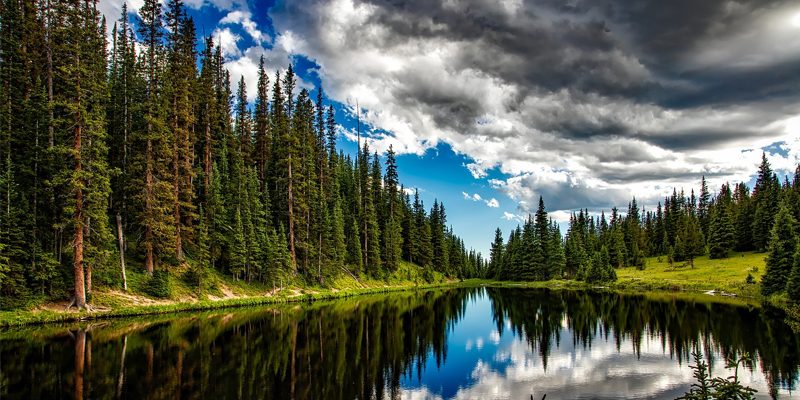The food we eat, the air we breathe, the water we drink and the climate that makes our planet habitable all come from nature. Yet, these are exceptional times in which nature is sending us a message: To care for ourselves, we must care for nature.
World Environment Day since 1974
World Environment Day is the United Nations day for encouraging worldwide awareness and action to protect our environment. Since it began in 1974, the event has grown to become a global platform for public outreach. The topic for 2020 is “time for nature”, more precisely biodiversity. Such themes are supposed to draw attention to a pressing environmental issue through various actions and awareness campaigns.
What is biodiversity and why does it matter?
Biodiversity, or biological diversity, is the variability of living things that makes up life on Earth. It encompasses the approximately 8 million species living on the planet – from plants and animals to fungi and bacteria. It includes the ecosystems that house them, such as oceans, forests, mountain environments and coral reefs, as well as the genetic diversity found among them. [1]
For human existence, healthy ecosystems, rich with biodiversity, are fundamental. Healthy ecosystems, rich with biodiversity, are necessary for human existence. Ecosystems sustain human life in many ways by purifying our air, treating our water, ensuring the availability of nutritious food, medicines and natural-based raw materials, and reduce the frequency of disasters.
Apparently we have not been caring about nature enough. We are witnessing unprecedented bushfires in Brazil, the United States and Australia, as well as the dying of coral reefs. The ongoing COVID 19 pandemic – the latest in a series of outbreaks of zoonotic diseases – shows that the health of our planet is linked to our health.
What are the drivers of biodiversity loss?
- Land-Use Change: Out demand for food and resources is driving deforestation, changing patterns and land use. It is destroying natural habitats all arround the world.
- Overexploration of Plants and Animals: The over-exploitation of resources by humans, including fishing, deforestation and poaching, threatens the existence of large and small creatures and their habitats.
- Climate Emergency: Climate change and the increase in weather extremes are driving the loss and degradation of habitats. For example, ocean warming is causing sea ice to melt. Intact ice flows are crucial for the survival of polar bears and seals, while acidifying oceans are bleaching coral reefs.
- Pollution: Pollution is a major and growing threat to biodiversity, with devastating effects on freshwater and marine habitats. This includes macro and micro-plastic parts floating in the ocean, or open landfills that affect plants and animals, while pesticides, fertilizers and other chemicals harm pollinators such as bees and bats, which are natural predators of pests.
Take action to stop degeneration of biodiversity in the context of the World Environment Day
… as an individual
You can actively take part in every World Environment Day! As individuals, we must rethink what we buy and use and become conscious consumers. If we are to change our current course of destruction to one of custodianship of nature, we must first LEARN about what we can do; SHARE that knowledge with our familes and friends on World Environment Day and beyond; and ACT on the things we need to change.
For all three fields – Learn, Share and Act – there are many resources that you can consult and recommendations to be found here.
… as a business
Companies depend on the environment and ecosystems of their host country to provide inputs for production and manufacturing processes. They can integrate bold, sustainable practices into their supply chains and financing. The principle is the same as for individuals:
- Learn: The World Environment Day offers a rich list of resources for companies where they can inform themselves as well as get active.
- Share: Companies can announce a new initiative, target, or transformational action that will improve their environmental footprint and explain how they will achieve it. Furthermore, they can consider becoming a part of a coalition, such as Business for Nature.
- Act: Companies need to understand, value and disclose their impact and dependency on nature. Afterwards they can halt deforestation and work towards zero natural habitat conversion for production or reduce their carbon footprint. In addition they should incorporate sustainability concerns at the earliest stages of planning.
Our goal is to raise awareness for biodiversity and we want to inspire you to take your own action at local level or as a company. Together let’s support biodiversity!
[1] World Environment Day (2020): A practical Guide, online, URL: https://p.widencdn.net/e2n0wj/WED_SimpleToolkit (retrieved May, 28 2020).
Further info to World Environment Day 2020: https://www.worldenvironmentday.global









